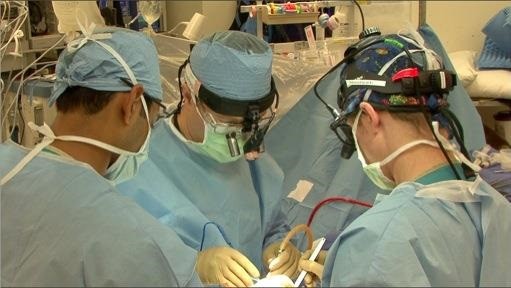Most epilepsy patients who underwent brain surgery to treat their condition are satisfied that the surgery improved their social well-being and mental health, says a new study by Henry Ford Hospital. The surgery was done to reduce their epilepsy-related seizures.
“Overall, the great majority of patients, 92 percent of them, expressed satisfaction with undergoing epilepsy surgery,” says Vibhangini S. Wasade, M.D., a Henry Ford Hospital neurologist and lead author of the study. “Following surgery, more patients were able to drive, and those with favorable seizure outcomes were more likely to be employed full-time and less likely to be taking antidepressant medication.”
The patients in the study had refractory epilepsy, which affects about one third of people with epilepsy. The most common procedure involves removing part of the temporal lobe, while in others various parts of the brain are removed. This condition is resistant to treatment with medication.
Henry Ford used its own databases to identify patients who underwent epilepsy surgery from 1993 to 2011. Researchers surveyed 253 out of 420 patients abut the frequency of their seizures, employment status, ability to drive, and their use of antidepressants.
Survey findings:
32 percent (82) patients were free of seizures
75 percent (189) had a favorable outcome to their surgery
85 percent (215) patients had temporal resection surgery with significant favorable outcomes
Patients were more likely to be:
driving (65 percent versus 11 percent)
less likely to be taking anti-depressants (24 percent versus 47 percent)
be employed (28 percent versus 8 percent).















